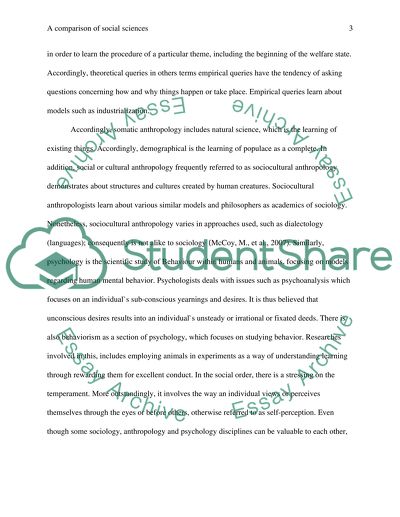Cite this document
(“Comparison of the Social Sciences Essay Example | Topics and Well Written Essays - 2000 words”, n.d.)
Retrieved from https://studentshare.org/sociology/1484475-comparison-of-the-social-sciences
Retrieved from https://studentshare.org/sociology/1484475-comparison-of-the-social-sciences
(Comparison of the Social Sciences Essay Example | Topics and Well Written Essays - 2000 Words)
https://studentshare.org/sociology/1484475-comparison-of-the-social-sciences.
https://studentshare.org/sociology/1484475-comparison-of-the-social-sciences.
“Comparison of the Social Sciences Essay Example | Topics and Well Written Essays - 2000 Words”, n.d. https://studentshare.org/sociology/1484475-comparison-of-the-social-sciences.


